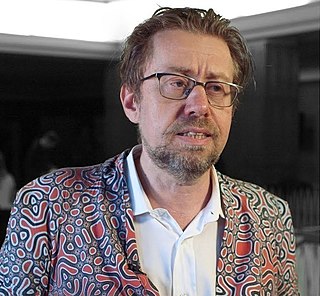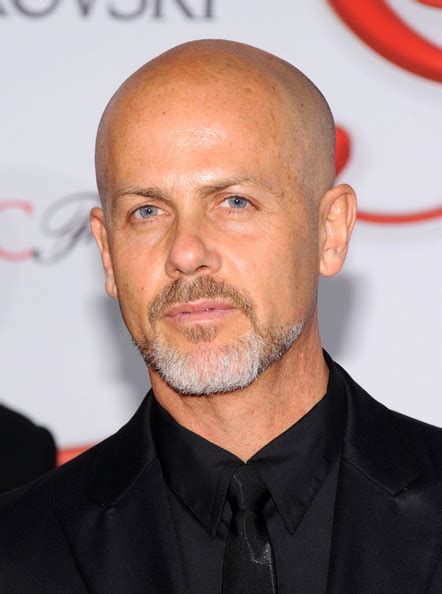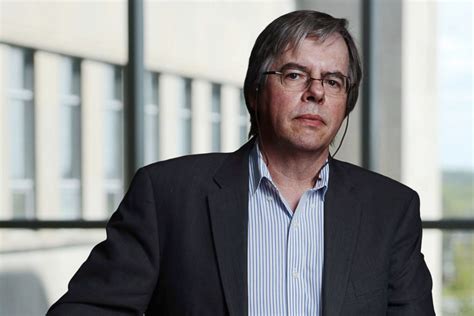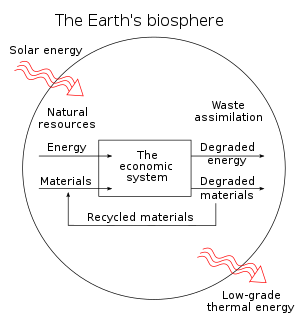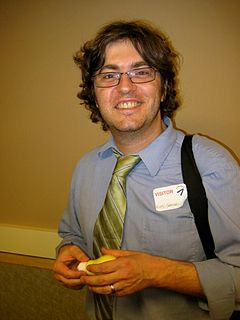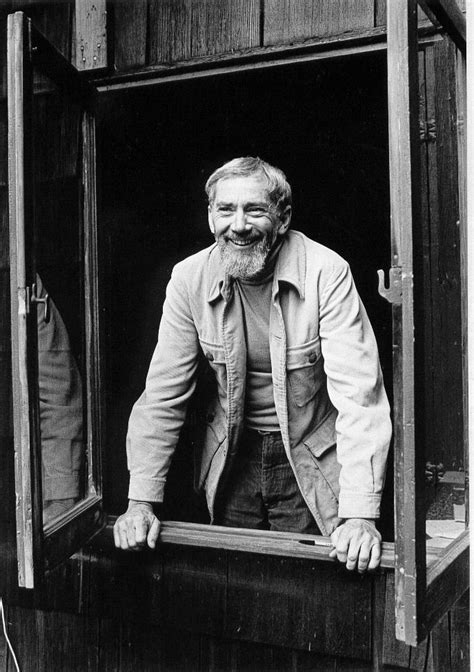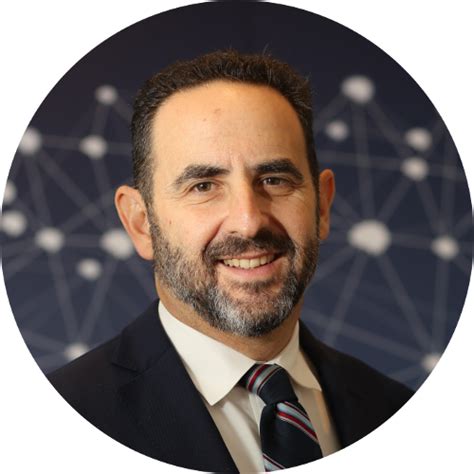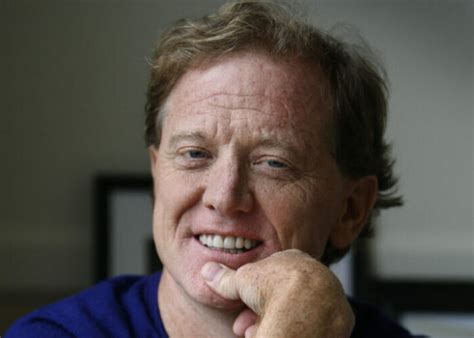Top 956 Technologies Quotes & Sayings - Page 15
Explore popular Technologies quotes.
Last updated on April 21, 2025.
We need to make growth greener, to make our economic and environmental policies more compatible and even mutually-reinforcing. This is not just a matter of new technologies or new sources of renewable, safe energy. It is about how we all behave every day of our lives, what we eat, what we drink, what we recycle, re-use, repair, how we produce and how we consume
The phone is gonna disappear. Maybe it will be a bracelet. After the bracelet it will be a blood cell sized device that maybe gets installed. We already have people with Parkinson's that have chips installed in their brain to control their tremors. We already see people have pacemakers to help their heartbeats. I mean we're already putting these technologies into our bodies. It is only going to deepen.
'The anthropocene' refers to the way we live now, in a highly globalized world, characterized by a large human population and powerful technologies that allow for "action at a distance" that aggregate apparently negligible acts into powerful forces that are transforming fundamental planetary systems. In this sense 'the anthropocene' refers to a period in which nature as an independent autonomous domain comes to an end or is under serious threat.
If you take psychedelics and the Internet and music and put all of that together you have the basis for a new community that is wider and deeper than you know. The people who are building the new machines, who are designing the new circuitry, who are writing the new code are ALL freaks. They work for capitalist dogs, of course, because we all do, but the creative thrust of these technologies is being driven by people just like you and me.
Now, a lot of what we are doing right now, quite frankly, is because of what happened on Christmas. Many of the things were kind of in the works. We were already planning, for example, the purchase and deployment of advanced imaging technology. You call them body scanners. We call them AITs (Advanced Imaging Technologies).
There are some who question the relevance of space activities in a developing nation. To us, there is no ambiguity of purpose. We do not have the fantasy of competing with the economically advanced nations in the exploration of the moon or the planets or manned space-flight. But we are convinced that if we are to play a meaningful role nationally, and in the community of nations, we must be second to none in the application of advanced technologies to the real problems of man and society.
At Facebook, we're inspired by technologies that have revolutionized how people spread and consume information. We often talk about inventions like the printing press and the television - by simply making communication more efficient, they led to a complete transformation of many important parts of society. They gave more people a voice. They encouraged progress. They changed the way society was organized. They brought us closer together.
At issue is not only knowledge of the world but our survival as individuals and as a species. All the basic technologies ever invented by humans to feed and protect themselves depend on a relentless commitment to hard-nosed empiricism: you cannot assume that your arrowheads will pierce the hide of a bison or that your raft will float just because the omens are propitious and you have been given supernatural reassurance that they will. You have to be sure.
Deal with just the basic fact: we will never have enough money for lawyers for poor people. So one of our major initiatives has been to develop new technologies that can help people without a lawyer navigate the legal system, and help sort the cases that really need to have a lawyer from those where an individual with some help online, may be able to manage by him or herself.
What happens to children and families today who sit around the television? They're watching made-up stories. It's not their experience and it's not truly shared. A human being must learn at a very young age how to connect to other human beings. Our technologies are driving us apart, only connecting us in terms of information, not in terms of emotions.
I think that human beings have gotten as far as we've gotten because of our adaptability, our ability to adapt, and our ability to dovetail our technologies - our brains to our tools. With the Industrial Revolution, we transcended the limits of our muscles. With the digital revolution, we transcend the limits of our minds.
It's important to Russia to be able to attract capital and to attract technology to develop their oil fields, their oil and gas fields, many of which suffer from lack of access to the very best technologies. And it's also important, and this has been the US government's view to have diversification of supply, diversification of supply roots and, of course, diversification in terms of alternative energy.
I'm sure that in the fullness of time we'll learn that one or more of these seemingly promising technologies were dead ends. And that's the nature of innovation, and that's why we should spread our bets; we should not put our eggs in any one basket. Some of these will be grand successes, some of them will be average, and some of them will be abject failures.
The point I'm trying to make is if these networks of communication technologies are owned, monetized, surveilled, and classified by those with power - very few people, mainly white men in Silicon Valley - then it is a global village build upon the ideas, visions, words, and protocols of the few. So it's not global - it's like Epcot center. It's like Disneyland: a small worldview of the larger world.
The universe is an emanation of mind. As human consciousness evolves in an accelerated spiral, we are being compelled to realize that our minds are manifesting reality to an ever-increasing extent- our collective shadow-projections of wasteful technologies, wars, and weaponry reflect subtler interior regions of our psyche and the discordant deceptions in our intimate relationships. If this interpretation is valid, it forces upon us a concomitant responsibility, a grave burden.
We humans have indeed always been adept at dovetailing our minds and skills to the shape of our current tools and aids. But when those tools and aids start dovetailing back - when our technologies actively, automatically, and continually tailor themselves to us, just as we do to them - then the line between tool and user becomes flimsy indeed.
All of the action, and the Wild West West fun, crazy, HBO stuff is in there and it's all amazing, but what separates the show [ Westworld] is that it's an existential drama. It's an intellectual nightmare. It is all very much based in reality. A lot of the technologies that we're exploring is stuff that we're working at, right now. All of this is not that far away. It's taking a look at humanity and the state that we're in now and what would happen, if we kept on going the way that we're going and we created this artificial intelligence.
There would be a cost for dumping carbon into our atmosphere and a cap on total emissions. The government must make a clear and firm decision - terminating the idea in our society it is free to pump infinite amounts of carbon into the air. Once that happens, private capital will flow even more aggressively into developing and deploying the alternative, less-polluting technologies.
Of course, we always get references from the past, but that doesn't mean that the clothes have to look like the past. We need to look forward, which is why I'm fascinated by new materials, technologies, techniques, and unusual ways to use colors or textures. It's very applicable to Calvin Klein because Calvin Klein has always been about modern-ness.
It is when physicians are bogged down by their incomplete technologies, by the innumerable things they are obliged to do in medicine when they lack a clear understanding of disease mechanisms, that the deficiencies of the health-care system are most conspicuous. If I were a policy-maker, interested in saving money for health care over the long haul, I would regard it as an act of high prudence to give high priority to a lot more basic research in biologic science.
When I talk about intersex, people ask me, 'But what about the locker room?' Yes, what about the locker room? If so many people feel trepidation around it, why don't we fix the locker room? There are ways to signal to children that they are not the problem, and normalization technologies are not the way.
There's been a lot of talk about body cameras as a silver bullet or a solution. I think the task force concluded that there is a role for technology to play in building additional trust and accountability, but it's not a panacea, it has to be embedded in a broader change in culture and a legal framework that ensures that people's privacy is respected and that not only police officers but the community themselves feel comfortable with how technologies are being used.
In the near term, oil is galloping ahead and leading our economy. We have to corral the "horse" and gradually reduce our dependence on oil and coal, in their present forms. Green-energy investment is inherently high-tech, and we could lead in the next-generation energy technologies, as we did and do now with oil and gas. All it takes is leadership!
Improved energy productivity and renewable energy are both available in abundance—and new policies and technologies are rapidly making them more economically competitive with fossil fuels. In combination, these energy options represent the most robust alternative to the current energy system, capable of providing the diverse array of energy services that a modern economy requires. Given the urgency of the climate problem, that is indeed convenient.
The laws of thermodynamics restrict all technologies, man's as well as nature's, and apply to all economic systems whether capitalist, communist, socialist, or fascist. We do not create or destroy (produce or consume) anything in a physical sense- we merely transform or rearrange. And the inevitable cost of arranging greater order in one part of the system (the human economy) is creating a more than offsetting amount of disorder elsewhere (the natural environment).
The technologies which have had the most profound effects on human life are usually simple. A good example of a simple technology with profound historical consequences is hay. ... It was hay that allowed populations to grow and civilizations to flourish among the forests of Northern Europe. Hay moved the greatness of Rome to Paris and London, and later to Berlin and Moscow and New York.
We might sometimes reflect and recall that the purpose of all our science, technology, industry, manufacturing, commerce, and finance is celebration, planetary celebration. This is what moves the stars through the heavens and the earth through its seasons. The final norm of judgment concerning the success or failure of our technologies is the extent to which they enable us to participate more fully in this grand festival.
The main purpose of my work is to provoke people into using their imagination. Most people spend their lives in dreary, grey-beige conformity, mortally afraid of using colours. By experimenting with lighting, colours, textiles and furniture and utilizing the latest technologies, I try to show new ways to encourage people to use their phantasy and make their surroundings more exciting.
I don't think humanity just replays history, but we are the same people our ancestors were, and our descendants are going to face a lot of the same situations we do. It's instructive to imagine how they would react, with different technologies on different worlds. That's why I write science fiction -- even though the term 'science fiction' excites disdain in certain persons.
I think hard times are coming when we will be wanting the voices of writers who can see alternatives to how we live now and can see through our fear-stricken society and its obsessive technologies to other ways of being, and even imagine some real grounds for hope. We will need writers who can remember freedom. Poets, visionaries-the realists of a larger reality.
These new investments in cyber security and the modernization of our military will spur substantial new job creation in the private sector and help create the jobs and technologies of tomorrow. It's what we have to do. America must be the world's dominant technological powerhouse of the twenty-first century, and young Americans - including in our inner cities - should get these new jobs!
Whatever prestige the bourgeoisie may today be willing to grant to fragmentary or deliberately retrograde artistic tentatives, creation can now be nothing less than a synthesis aiming at the construction of entire atmospheres and styles of life. . . . A unitary urbanism — the synthesis we call for, incorporating arts and technologies — must be created in accordance with new values of life, values which we now need to distinguish and disseminate. . . .
Designing Online Communities is a must-have for anyone designing or researching online communities, particularly for learning. Owens' work is both comprehensive and eminently readable, a sweeping look at the technologies, design patterns, and cultural forms they produce that is both theoretically ambitious and grounded in examples and tools that will help you develop, research, and manage online communities.
The question is: do we pay a little bit more now? Or do we pay a whole lot later? For the equivalent of a postage stamp a day for each American, we can put a price on carbon today that will send a signal to private capital to invest in the clean technologies of tomorrow. Taking a vast portfolio of new energy solutions to scale will ultimately drive down costs through competition.
Tech stocks were the cubic zirconium of the market. They looked good and were sexy, but they just were a way for the company selling them to make money. That's always going to be transient in terms of the stock market. What's real is that companies have to compete. Technology used well is a great tool to enable that if only because most companies dont use technologies well.
Careless of waste, wallowing in refuse, exterminating the enemies . . . despising age, denying human natural history, fabricating pseudotraditions, swamped in the repeated personal crises of the aging preadolescent; all are familiar images of American society. They are signs of private nightmares of incoherence and disorder in broken climaxes where technologies in pursuit of mastery create ever-worsening problems - private nightmares expanded to a social level.
Distractions are everywhere. And with the always-on technologies of today, they take a heavy toll on productivity. One study found that office distractions eat an average 2.1 hours a day. Another study, published in October 2005, found that employees spent an average of 11 minutes on a project before being distracted. After an interruption it takes them 25 minutes to return to the original task, if they do at all.
Whenever there's a new music, there's a new way of listening. And whenever there's a new way of listening, there are new musics that follow from that. And people start listening differently - that can either mean in different places or at different volumes or in different social groups or through different technologies.
Digital technologies are setting down the new grooves of how people live, how we do business, how we do everything--and they're doing it according to the expectations of foolish utopian scenarios. We want free online experiences so badly that we are happy to not be paid for information that comes from us now or ever. That sensibility also implies that the more dominant information becomes in our economy, the less most of us will be worth.
They say an elephant never forgets. Well, you are not an elephant. Take notes, constantly. Save interesting thoughts, quotations, films, technologies…the medium doesn't matter, so long as it inspires you. When you're stumped, go to your notes like a wizard to his spellbook. Mash those thoughts together. Extend them in every direction until they meet.
I am not a technophobe and I am using the latest technology today, some 30-odd years later, and I am really enjoying what some of the new technologies can offer. But at the same time I am always aware that one can get bogged down in that technology and that it can become more than just a method. That's something that you have to be slightly careful of.
The combination of the growth of these digital technologies, the ability of the government to conjure up these secret interpretations, plus a very unusual and novel court make for this ever-expanding surveillance state. We so treasure our freedoms; we will regret it if our generation doesn't use this unique time to reform the surveillance laws and make it clear that security and liberty are not mutually exclusive. We can do both.
It doesn't take billions of dollars or complex medical technologies, and there doesn't have to be a dramatic upending to the current order. It's trying to change the mindset of people who deal with youth to have less judgement and more curiosity. That's asking a lot, emotionally it's asking people to step up and engage more. But what I often heard was that is easier for them to engage emotionally, than to just be angry and judgmental.
Not only do we end up with a vivid, surprising and soulful sense of one artist and his work, but Leigh also offers us a commanding view of a city, London, and country at the dawn of the modern age and of a man being overawed and overtaken by new technologies such as photography and the railways. As ever with Leigh, 'Mr Turner' addresses the big questions with small moments. It's an extraordinary film, all at once strange, entertaining, thoughtful and exciting.
What is going on now, or should happen in one or two generations, is the disintegration of the world. Real time 'live' technologies, cyberreality, will permit the incorporation of the world within oneself. One will be able to read the entire world, just like during the Gulf War. And I will have become the world. The body of the world and my body will be one.
All the big ideas for getting us onto a lower carbon trajectory involve a lot of people doing a lot of work, and that's been missing from the conversation. This is a great time to go to the next step and ask, well, who's going to do the work? Who's going to invest in the new technologies? What are ways to get communities wealth, improved health, and expanded job opportunities out of this improved transition?
We can change our thinking. Rather than viewing the chemical adulteration of our environment and our bodies as the inevitable practice of convenience and progress, we can decide that cancer is inconvenient and toxic pollution archaic and primitive. We can start seeing the creation of carcinogens as the result of outmoded technologies. We can demand green engineering and green chemistry. We can let our systems of industry and agriculture know that they are suffering from a design flaw.
In history, in most cultures, and at most points in time, if you want to find the most advanced technologies, you can look principally in two places. One is weapons and the other is musical instruments. My hypothesis is that instruments are usually ahead of weapons. In fact, I think you can find many examples of instruments being predecessors of weapons and very few in the reverse.
New investments in cyber security and the modernization of our military will spur substantial new job creation in the private sector and help create the jobs and technologies of tomorrow. It's what we have to do. America must be the world's dominant technological powerhouse of the twenty-first century, and young Americans - including in our inner cities - should get these new jobs!
Introducing a technology is not a neutral act--it is profoundly revolutionary. If you present a new technology to the world you are effectively legislating a change in the way we all live. You are changing society, not some vague democratic process. The individuals who are driven to use that technology by the disparities of wealth and power it creates do not have a real choice in the matter. So the idea that we are giving people more freedom by developing technologies and then simply making them available is a dangerous illusion.
We need to have nature back in our atmosphere. There might be a turning point of going backward - within a few thousand years we are going back to the Stone Age! There are many scenarios [with] the robot technologies: Humans no longer need to walk; machines can produce products and food and everything. You might not be able to recognize what's false and what is real.
What we need is a 'Smart Wall' to solve our 21st century border problems. A Smart Wall would use sensor, radar and surveillance technologies to detect and track incursions across our border so we can deploy efficiently our most important resource, the men and women of Border Patrol, to perform the most difficult task - interdiction.
America has the highest standard of living of any major country in the entire world. To maintain and enhance that standard of living, America should continue to embrace those qualities which have made America great: openness and dynamism. Openness to new technologies, new ideas and new people is America's greatest source of strength.















